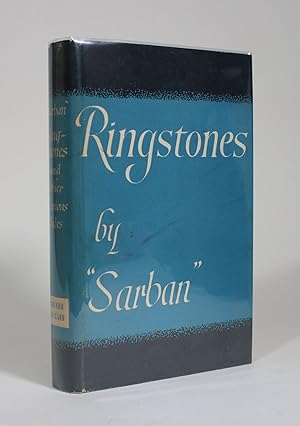

Sarban invites us to compare Mr and Mrs Maple with the children under their command. In intimating that there may have been more valuable ideals than the British war effort, “Calmahain” anticipates the ambivalence towards patriotic warfare which would characterise Evelyn Waugh’s Sword of Honour trilogy (1952-61). Moreover, Sarban might have bigger fish to fry. I have no wish to regiment Sarban with such undistinguished troops and, in any case, “Calmahain” was written in 1948, between the publication of Tolkien’s The Hobbit (1937) and The Lord of the Rings (1954), and before that of Lewis’ seven Chronicles of Narnia novels (1949-1954). “Calmahain” appears to pastiche or even encroach upon parodying the synthetic substitute folklore which was ventured within the fiction of JRR Tolkien and CS Lewis. There may be added mischief to the English stories because they concern the doings of faeries.

The two stories from Ringstones to be set in England, “Calmahain” and “Ringstones” itself, are at one with the “overseas” stories from Sarban’s diplomatic bag in setting complex interpretive challenges, often in a spirit of nothing more profound than mischief.

Sarban was the pseudonym of the British diplomat John William Wall. In “Capra” a Greek god is fended off with small arms fire, whilst “The Khan” attempts to implicate the reader in the spinning of a grossly racist folk story. “A Christmas Story” goes AWOL from Christmas, out-Scrooging Scrooge with its woeful vision of a drowning mammoth. Sarban’s Ringstones and Other Curious Tales (1951) often appears to be having fun at the expense of tradition and antiquity.


 0 kommentar(er)
0 kommentar(er)
